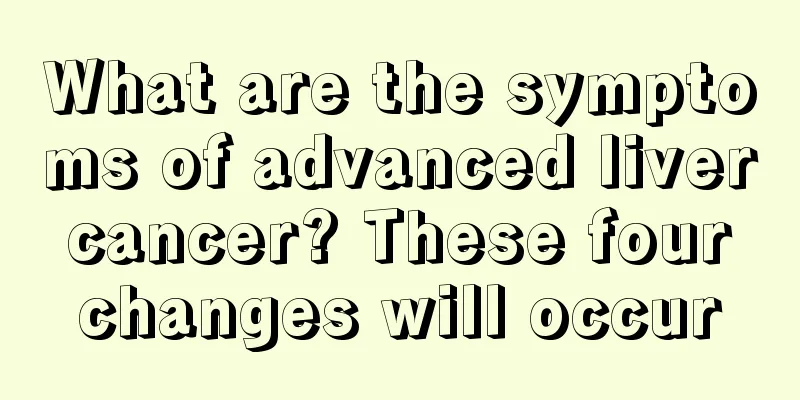Traditional Chinese Medicine Treatment for Laryngeal Cancer Lymph Metastasis

|
As the weather gets cooler, many people like to go out for hot pot in twos and threes. However, although hot pot is delicious, many people like to eat hot pot with numbing and spicy taste. In fact, this may cause irritation to our throat and cause laryngeal cancer. In ancient China, people used traditional Chinese medicine to treat diseases. A long time ago, some diseases had no names, but because our ancestors were smart, they invented traditional Chinese medicine. For thousands of years, people have been using this method to treat various diseases. With the changes in human living conditions, the types of diseases have also increased. Laryngeal cancer is one of them. So, how do old Chinese medicine practitioners treat laryngeal cancer? Let's take a look. In the early stage of this disease, it is mostly caused by wind-heat obstruction or heat accumulation in the lungs and stomach. The treatment is mainly to dispel wind, clear heat and relieve sore throat, supplemented by detoxification and dispersing nodules; or it is caused by liver depression, qi stagnation, blood stasis, and phlegm accumulation. The treatment should be to soothe the liver and relieve depression, promote blood circulation and remove blood stasis, promote qi and resolve phlegm and disperse nodules; in the late stage, it is mostly caused by blood stasis and phlegm coagulation, and deficiency of both qi and yin. The treatment should be to invigorate qi and nourish yin, soften hard masses and disperse nodules, strengthen the body and detoxify, and treat both the symptoms and the root cause. TCM treatment content: 1) Wind-heat blocking type Main symptoms: dry throat, dry choking without phlegm, hoarseness, nasal congestion and pharyngeal obstruction, thin yellow tongue coating, floating and rapid pulse, etc. Treatment method: Soothe wind, clear heat and relieve sore throat, assist with detoxification and relieving nodules. 2) Qi stagnation and blood stasis type Main symptoms: Throat pain, as if with obstruction, difficulty swallowing, inability to eat for a long time, coughing up blood in sputum, dry skin, pale red tongue with ecchymosis, thin white fur, and thready and wiry pulse. Treatment method: Promote blood circulation and remove blood stasis, soften and disperse nodules. 3) Liver depression, qi stagnation, and heat accumulation Main symptoms: chest and flank distension, dizziness, throat discomfort, foreign body sensation, difficulty swallowing, hoarseness, bitter mouth and dry throat, dry tongue with thin yellow fur, stringy and thin pulse, which are the signs of early and middle stage laryngeal cancer. Treatment: Soothe the liver and relieve depression, clear and drain liver fire. 4) Phlegm accumulation type Main symptoms: fullness and stuffiness in the chest and flanks, abundant and thick phlegm, hoarseness, throat pain or ulceration, headache and shortness of breath, pale red tongue, greasy white tongue coating, and slippery pulse. Treatment method: Promote qi circulation, resolve phlegm and disperse nodules, promote dampness removal, eliminate turbidity and detoxify. 5) Yin deficiency and heat toxicity type Main symptoms: dry choking without sputum or blood in sputum, dry mouth and tongue, worsening hoarseness, irritability and insomnia, constipation and dark urine. If accompanied by ulceration, coughing up bloody sputum and foul breath. The tongue is covered with yellow fur, the tongue is red or wiry or purple, and the pulse is stringy or thin. Treatment method: Nourish yin and cool blood, clear away heat and detoxify. 6) Qi and Yin deficiency type Main symptoms: fatigue, shortness of breath when moving, dizziness, palpitations, dry mouth and throat. Five-heart heat or cough with bloody sputum, loss of appetite, difficulty breathing, lingering low-grade fever, pale red or reddish-purple tongue, thin or no coating, weak or thready pulse. It is more common in the middle and late stages of laryngeal cancer or after radiotherapy or chemotherapy. Treatment method: Nourish Qi and Yin, moisten the lungs and resolve phlegm. Through the above introduction, I believe that everyone now understands how traditional Chinese medicine treats laryngeal cancer. In life, due to the high malignancy of laryngeal cancer, the harm it causes to patients is also very great, and other treatment methods will have certain side effects. Only traditional Chinese medicine can not only treat the disease, but also will not cause greater harm to the body. |
<<: Methods of nursing care for patients with laryngeal cancer
>>: Will you die from advanced throat cancer?
Recommend
How long does it take for nipple cracks to heal
Many mothers have experienced nipple cracks, whic...
Is it reliable to use photons to remove red blood streaks?
Laser technology is widely used in the field of m...
Are blue veins arteries or veins
Everyone will have blue veins on their arms or le...
How many kinds of tea are there
We should all be familiar with tea. It has high n...
What should you pay attention to when exercising for premature heart beats?
In fact, everyone's heart beats at a certain ...
What medicine to take for bladder cancer bone metastasis
Bladder cancer can be divided into many categorie...
What causes black lips
Under normal circumstances, the color of the lips...
What are the benefits of deep sea fish oil for women
Women are under a lot of pressure in their curren...
How should lung cancer patients be cared for after surgery? Five aspects of care should be provided after lung cancer surgery
When lung cancer patients reach the advanced stag...
Method of pickling osmanthus
Everyone should know that osmanthus is not only a...
Joint discomfort caused by air conditioning
Many people know that using air conditioning for ...
What are the causes of colorectal cancer
Many people do not know what causes colorectal ca...
To relieve headaches, just massage this area
Migraine is a common disease nowadays. Most of th...
What does low progesterone and high hcg mean
After a woman becomes pregnant, she needs to unde...
X-ray barium meal examination findings of advanced gastric cancer
The general classification of advanced gastric ca...









